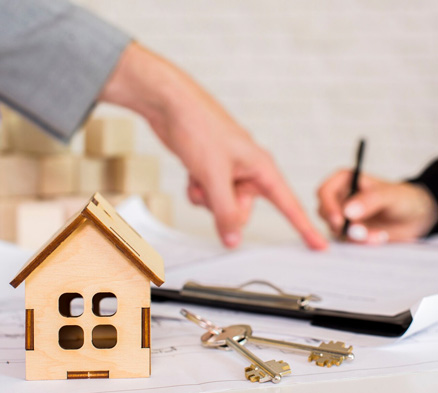
Refinance Your Mortgage: Everything You Need to Know
Thinking about refinancing your home loan? Whether you’re looking to lower your monthly payment, reduce your interest rate, or tap into your home’s equity, mortgage refinancing can be a powerful financial tool when timed right. At KB Mortgage, we’re here to help you understand the refinance process, what it involves, and how to know if now is the right time for you.
What Is Mortgage Refinancing?
Refinancing replaces your existing mortgage with a new one—usually with better terms. Homeowners often refinance to:
- Lower their interest rate
- Reduce monthly mortgage payments
- Shorten the loan term (e.g., from 30 to 15 years)
- Switch from an adjustable-rate mortgage (ARM) to a fixed-rate mortgage
- Access home equity for cash-out refinancing (for renovations, debt consolidation, etc.)
When Should You Refinance Your Mortgage?
- Interest rates have dropped since you first purchased your home
- Your credit score has improved, qualifying you for better terms
- You want to lower your monthly payments
- You need cash for a big expense and want to do a cash-out refinance
- You want to pay off your home faster by reducing your loan term
- You want to eliminate private mortgage insurance (PMI)

What Does the Refinance Process Involve?
Refinancing a mortgage is similar to the original home loan process, but typically faster and more streamlined. We can close a refi in as fast as 2 weeks, if necessary. Here’s what to expect:
- Initial Consultation – We review your goals and evaluate if refinancing is right for you.
- Loan Application – You’ll submit updated financial documents, such as income, assets, and credit information.
- Home Appraisal – In most cases, a home appraisal is required to determine current property value although sometimes we do have what is called an Appraisal Waiver and no physical appraisal is required.
- Underwriting – Our team verifies your financials and property details to approve the new loan.
- Closing – Once approved, you'll sign new loan documents and pay any closing costs (or roll them into the loan).
- Funding – Your old mortgage is paid off, and your new loan terms begin.
Is Refinancing Right for You?
Every homeowner’s situation is unique. Whether you’re looking to free up cash, lock in a better rate, or pay off your loan sooner, refinancing could be a smart move—but only if it aligns with your financial goals.
At KB Mortgage, we offer personalized refinance reviews to help you weigh your options. We’ll guide you through every step, ensuring transparency, clarity, and a smooth experience.
Start Your Refinance Today
Ready to explore your refinance options? Answer the questions below so we can review your scenario to see how much you could save. We’re here to help you make the most of your home’s equity and secure a brighter financial future.
Frequently Asked Questions About Refinancing
1. How do I know if refinancing is worth it?
2. What are the closing costs when refinancing a mortgage?
3. How long does the refinance process take?
4. Will refinancing hurt my credit score?
Refinancing may cause a temporary dip in your credit score due to the credit inquiry and the opening of a new loan, but you’ll usually bounce back within 4 to 6 weeks. Also, maintaining on-time payments on your new mortgage can help your score recover—and may even improve it over time.
5. Can I refinance with bad credit?
Yes, it’s possible to refinance with less-than-perfect credit, although your options may be more limited. We can help evaluate your current credit profile and explore refinance programs that may still be available to you or work with you on a customized credit plan to put yourself in a better position before refinancing.
6. What is a cash-out refinance, and how does it work?
A cash-out refinance allows you to refinance your mortgage for more than you owe and take the difference in cash. It’s a great way to fund home improvements, consolidate debt, or cover large expenses—while potentially benefiting from lower interest rates than other types of loans.
7. Can I refinance a second home or investment property?
Absolutely. You can refinance primary residences, second homes, and investment properties. The process is similar, but investment property refinances may have different qualification guidelines or interest rates.
Refinancing your mortgage is a powerful way to take control of your finances, reduce monthly payments, and unlock the equity you’ve built in your home. Whether you’re looking to save money, eliminate debt, or invest in your future, our team is here to guide you with clarity, confidence, and care. If you’re ready to explore your options or just have questions, we’re here to help—no pressure, just honest advice. Let’s connect and create a refinance plan that works for you.